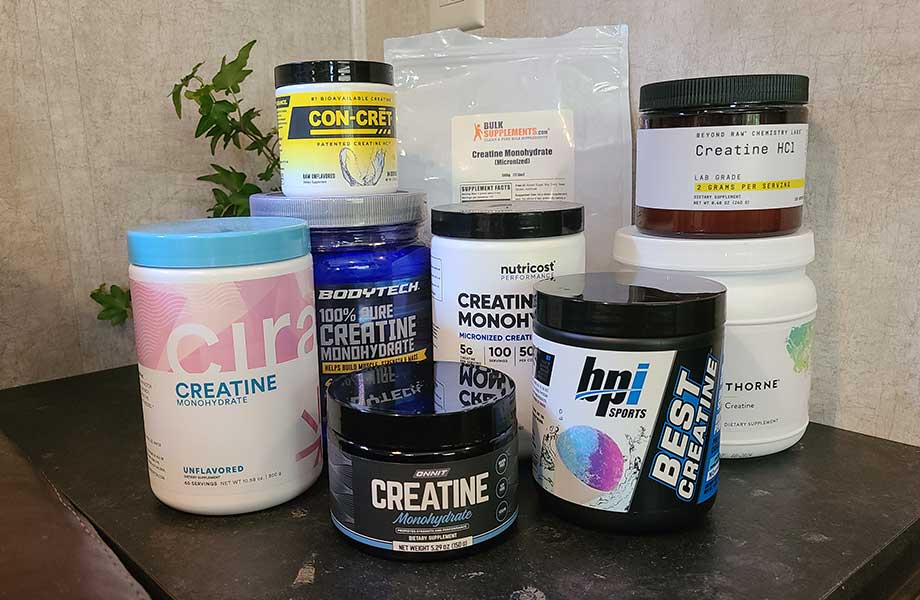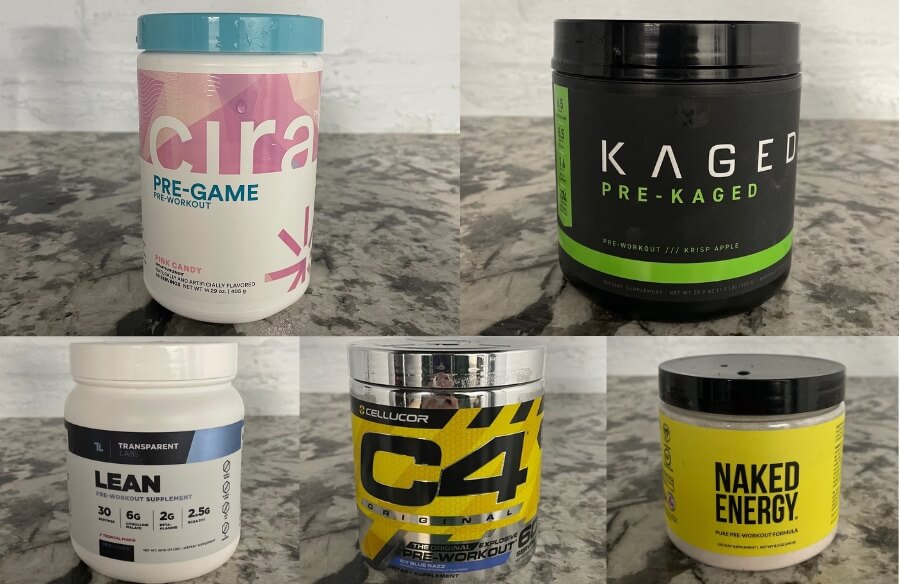Workout supplementation isn’t a must, but using it correctly can enhance your fitness and financial investments, especially in the case of creatine.
Given the International Society of Sports Nutrition’s1 (ISSN) endorsement of creatine as the top ergogenic supplement for boosting high-intensity exercise performance and lean muscle mass, it’s natural to wonder, “When is the best time to take creatine?” Is taking creatine before bed or in the morning more effective, or should you be timing around your workouts?
Although the answer isn’t as straightforward as departing from caffeine before your slumber, we can offer the most current evidence-based guidelines. So join me, a registered dietitian, as I address whether you should consume creatine before your head hits the pillow.
RELATED: Best Creatine
Medical disclaimer: This article is intended for educational and informational purposes only. It is not intended as a substitute for medical advice. For health advice, contact a licensed healthcare provider.
Short Answer: Can You Take Creatine Before Bed?
The short answer is yes, you can take creatine before bed.
Curious about the longer answer, including whether you should take creatine before bed? Stay with us, but here’s a teaser: Creatine can safely be taken anytime and still offer powerful benefits. However, it’s important to remember that most, if not all, questions regarding diet and nutritional supplements involve subtle nuances.
But before we get into these details, let’s tuck into the essentials of creatine.
Transparent Labs Creatine HMB
Transparent Labs Creatine HMB
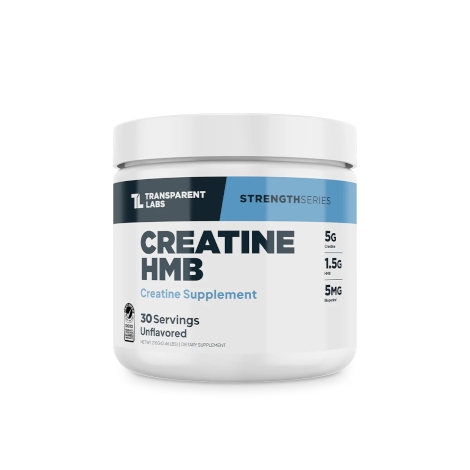
Product Highlights
- Uses research-backed doses
- Available in more than 10 fruit flavors and an unflavored option
- Free from artificial sweeteners, colored dyes, fillers, and harmful additives
Pros & Cons
Pros
- 10+ flavors, 1 unflavored option
- Includes B-Hydroxy B-Methylbutyrate (HMB)
- 5 grams of creatine monohydrate per serving
- Contains no added sugar, artificial sweeteners, dyes, or fillers
- 10% off and free shipping with subscription
Cons
- No stimulant (for those looking for pre-workout boost)
- Some reviews say supplement is overly sweet
- Mixed reviews on solubility (not dissolving thoroughly)
Bottom Line
Transparent Labs’ Creatine HMB puts a unique twist on the more traditional creatine monohydrate by adding HMB to more effectively build strength, stamina and recovery. It's available in a dozen different flavors, including an unflavored option; some reviews criticize the taste of some flavors, though, saying that they're overly sweet.
What Is Creatine?
Creatine1 is a naturally occurring organic compound primarily sourced in red meat and seafood. The human body can also make creatine using the amino acids arginine, glycine, and methionine, mainly in the kidneys, liver, and pancreas.
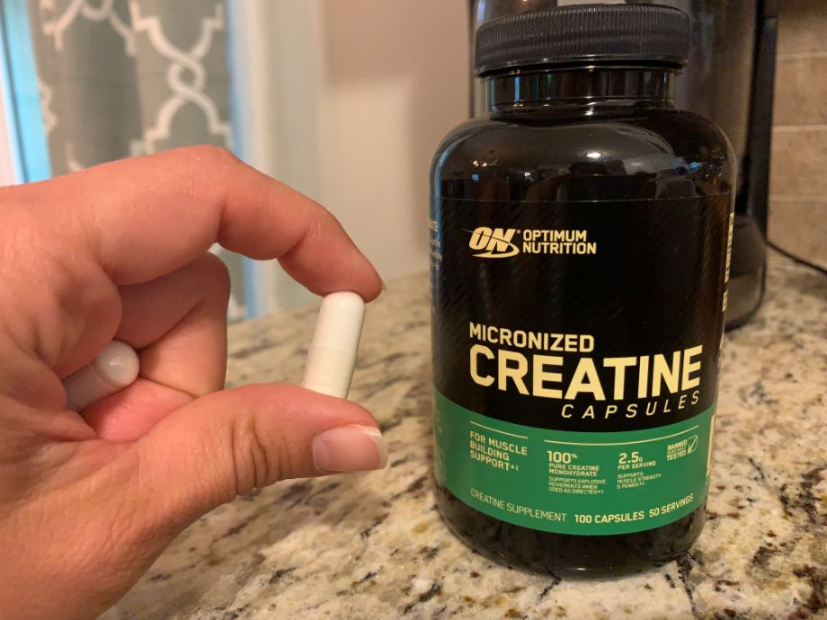
Phosphocreatine2, the active form of creatine, is predominantly stored in skeletal muscle tissues. Muscles depend on adenosine triphosphate (ATP) for cellular energy, and phosphocreatine helps muscle cells make more ATP to power muscles during short-term, high-intensity activities.
Given its role in enhancing ATP and energy production during intense anaerobic (without oxygen) exercises, creatine supplements have become a staple among bodybuilders and fitness enthusiasts. Creatine monohydrate is the most extensively researched and commonly used type of creatine.
How To Take Creatine
If you’re considering adding creatine to your regimen, understanding how to dose it is crucial for maximum muscle gains and benefits. Let’s break down the two phases: loading and maintenance.
Loading Phase
The initial creatine loading phase involves a higher creatine intake for 5 to 7 days to saturate your muscles quickly. The typical approach is to consume 5 grams of creatine monohydrate four times daily, or about 0.3 grams per kilogram (g/kg) of body weight.
For instance, a person weighing 200 pounds (90.9 kg) would take about 27 grams daily. Simply divide your body weight (in pounds) by 2.2 to convert it into kilograms, then multiply by 0.3 grams.
The ISSN finds this method effective for rapidly increasing muscle creatine stores. However, it’s not essential, and skipping it can reduce the potential side effects addressed below.
Maintenance Phase
After the initial loading phase, you’ll enter maintenance with a lower daily dose of 3 to 5 grams, or 0.03 grams per kilogram of body weight. Heavier athletes might need up to 10 grams. For someone who weighs 200 pounds, their maintenance dose is about 3 grams daily.
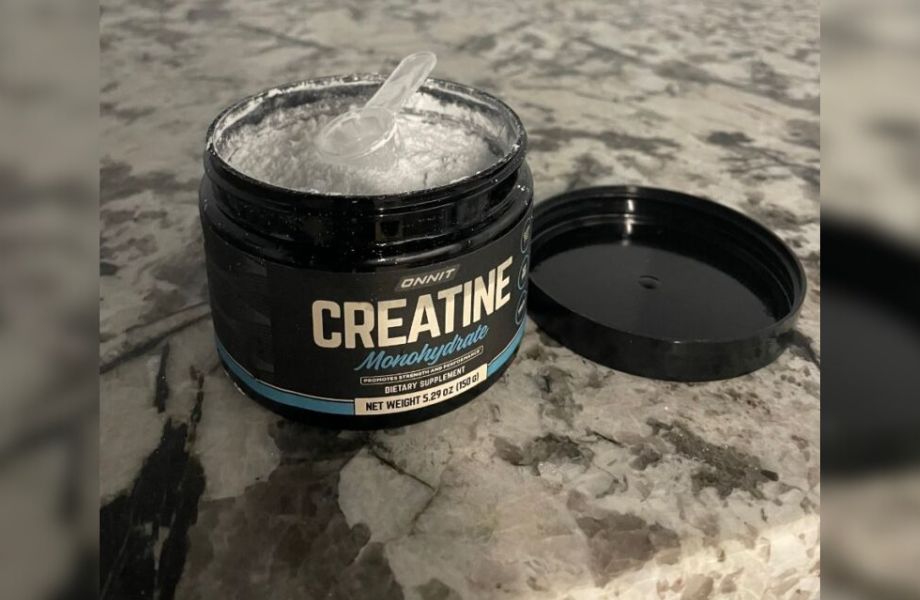
With proper dosing so essential, you might wonder when to take creatine for optimal results. Here’s what we know.
When To Take Creatine
While dosing is more important than the timing of creatine supplementation3, the latter still intrigues many people. Let’s explore the most commonly studied timings to determine the optimal moment for your creatine intake.
Pre-Workout vs Post-Workout
The debate over whether to take creatine before or after a workout is ongoing, with studies yielding mixed results.
Some evidence3 suggests that pre-exercise creatine intake might enhance creatine uptake and loading due to increased blood flow during exercise. Yet, another study4 indicates more significant muscle and strength gains with post-exercise creatine. To muddy the waters even more, one study5 shows no significant difference between taking creatine pre- or post-workout.
The most current verdict?
Timing creatine around workouts may be more worth considering during the initial creatine loading phase but less important once the muscles are fully saturated. However, timing creatine around training should not be considered a real concern for now.
Morning vs Night
No substantial evidence favors taking creatine either in the morning or at night before bed. A recent 2022 study6 found no significant differences in performance when comparing morning versus evening creatine intake in elite female handball players.
Furthermore, research indicates that the timing of creatine intake around training may be more impactful than other times of the day. A 10-week study7 revealed that consuming creatine supplements close to workouts led to more significant increases in muscle creatine levels, strength, and lean mass compared to taking it in the morning before breakfast or late in the evening before bedtime.
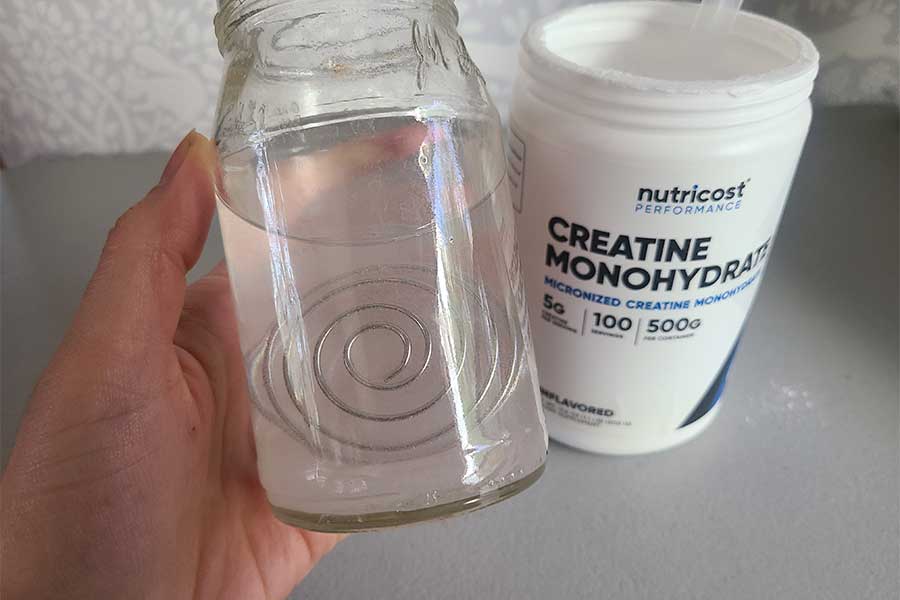
It’s important to note that the provided supplements also contained protein and carbohydrates, which could affect creatine uptake and recovery. However, the benefit of taking creatine with food rather than on an empty stomach remains unclear.
Something to consider, though: Caffeine and stimulants can disrupt your sleep quality and duration, so rethink taking pre-workouts with creatine too soon before bed.
Training vs Rest Days
For proper recovery, allotting non-training days is paramount. But should you take creatine on rest days?
Registered dietitian and GGR writer Destini Moody advises, “In order to get the most out of your training, it’s best to avoid skipping doses of creatine, even on rest days. Creatine taken on rest days may be referred to by a nutritionist or other fitness professional as a ‘maintenance dose,’ as it is meant to help the muscles maintain their creatine levels, even on days you aren’t doing weightlifting.”
If you occasionally miss a dose, though, don’t stress! Certified sports nutrition coach Amanda Capritto explains, “Creatine builds up in muscle tissue over time, so a few missed days over time won’t make that drastic of a difference.”
Consistency vs Inconsistency
While the optimal timing for creatine intake isn’t clear based on current data8, consistency is crucial for maximizing the benefits of creatine. As Amanda also points out, “If you’re consistently skipping, you definitely won’t reap all of the benefits.” (And we certainly don’t want that for you!)
To ensure you make the most of your creatine supplementation, it’s vital to maintain regularity in your daily intake. Consider these tips to help find the best time of the day for you:
- Choose a memorable time: Pick a time you’re least likely to forget. For instance, if you have a consistent morning or bedtime routine, this might be a memorable time to take creatine.
- Consider convenience: Fit creatine into the most convenient part of your routine. If mornings are too rushed, an evening dose might be more suitable, and vice versa.
- Align with existing habits: If you already have a post-workout shake or fixed meal times, adding creatine to these existing habits can help ensure you don’t miss a dose.
The goal is to integrate creatine supplementation smoothly into your daily life, unlocking its full benefits, whether in the morning, evening, or around your workouts.
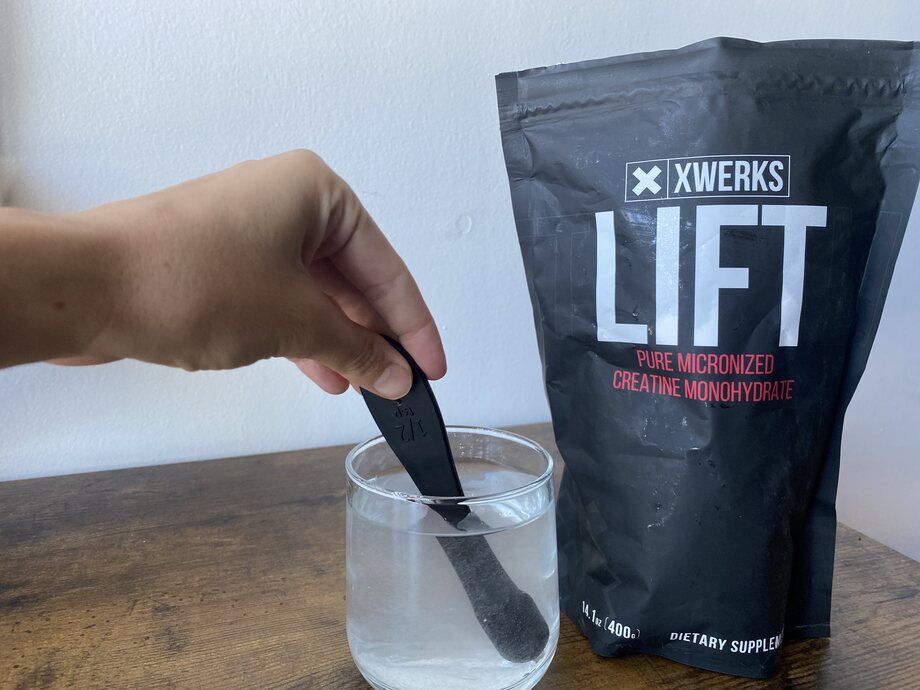
Benefits of Creatine
Among the myriad of supplements on the market, creatine monohydrate is the most extensively researched and endorsed.1 There are many known benefits of creatine—here’s a brief overview of what this powerful supplement offers.
Boosts Muscular Energy and Performance
Creatine effectively boosts muscle energy for power exercises like sprinting, heavier weightlifting, and increased reps. Although a 2023 meta-analysis9 suggests creatine doesn’t enhance endurance, another 2023 review10 points out that endurance races often require short bursts of maximum intensity, proposing creatine’s potential benefits in these scenarios.
Enhances Muscle Strength, Power, and Size
Creatine is widely recommended for athletes focused on power and strength, as it can enhance repetitive and high-intensity athletic performance by up to 20 percent1. A 12-week clinical trial11 indicates long-term creatine use significantly increases muscle strength and size.
Research12 also shows that combining creatine with resistance training augments muscle growth and strength in older adults. It may also improve strength in those with muscular dystrophy13, known for progressive muscle weakness.
Supports Muscle Recovery and Injury Prevention
Creatine users report less muscle cramping, tightness, strains, and pulls. Athletes who take creatine during training and competition, compared to those who don’t, have lower incidences of injuries1.
A 2021 study14 proposes creatine may enhance post-workout muscle recovery by reducing the overall volume of muscle damage during exercise and post-exercise inflammatory response. So, naturally, creatine is one of the best muscle recovery supplements.
Offers Neuroprotection Benefits
Creatine helps protect the brain and spinal cord, especially in injuries and ischemic events when blood supply is limited. It may also lessen the impact of traumatic brain injuries and spinal cord injuries, and the ISSN encourages all high-risk athletes to consider taking creatine.
Supports Overall Health
Creatine isn’t just to enhance your high-intensity workouts and help you build muscle, albeit those are major perks! It’s essential for maintaining overall health at any age, and a 2021 review15 sheds light on its diverse health benefits:
- May lower the risk of chronic diseases like heart disease and some cancers
- May reduce bone loss
- May enhance cognitive function and mental health
- May bolster immune health
- May promote healthy aging and independence
With such a range of proven advantages, you might wonder about the drawbacks. Let’s address the possible side effects of creatine supplementation.
Potential Side Effects of Creatine
The ISSN confirms that creatine supplementation, whether short- or long-term, is safe for people of all ages. However, it’s wise to be aware of potential creatine side effects, which are generally mild and temporary.
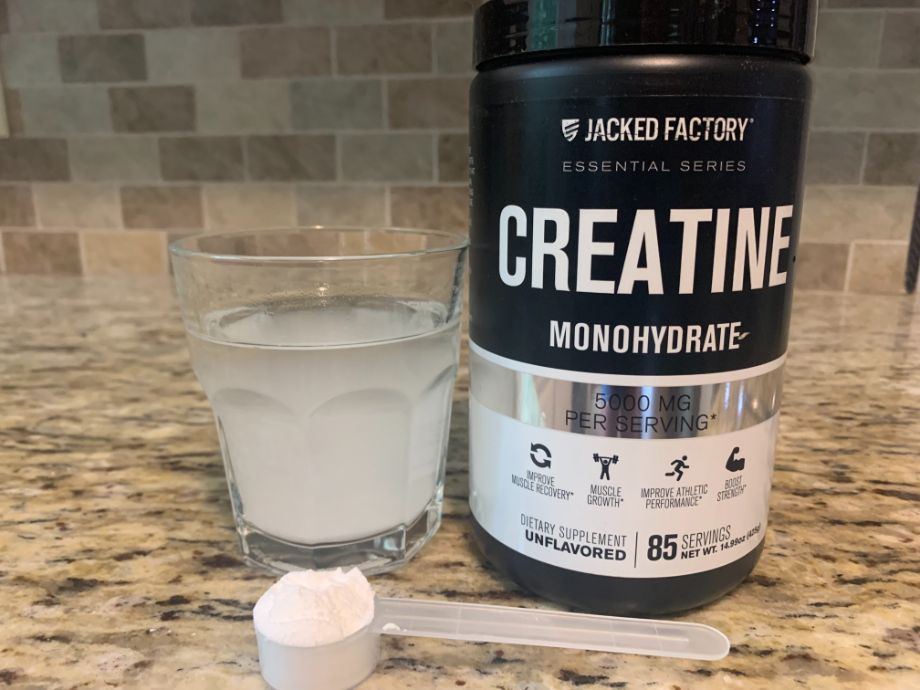
Creatine’s most prevalent side effect is weight gain1, largely due to water retention and an increase in lean muscle mass—a result often seen as positive! Higher doses may cause stomach discomfort and bloating, while extremely high levels could affect liver and kidney function.
To reduce the likelihood of side effects, consider skipping the creatine loading phase and sticking to lower daily doses, about 3 to 5 grams, rather than higher doses of 10 grams or more. Keeping well-hydrated can also help mitigate these risks.
RELATED: How Much Water Should You Drink with Creatine?
It’s also important to remember that consulting a doctor for tailored supplementation advice is always the best and safest approach.
Taking Creatine Before Bed: Final Thoughts
While not essential, creatine stands out for its significant fitness and health benefits. Of course,
provided it’s part of a holistic approach that includes a whole-foods-based diet and structured training.
Regarding the optimal time for taking creatine—before bed, in the morning, or surrounding workouts—the key lies in consistent intake and proper dosing rather than a specific timing. This mirrors the importance of consistently maintaining a healthy lifestyle overall.
For most users, the focus should be on integrating creatine into their daily routine naturally and effortlessly. Whether combining creatine with protein before bed or including it with pre-workout carbs, align your timing with your lifestyle.
The bottom line we should rest our heads on? Ensure consistent creatine use, like the ongoing commitment to a healthy lifestyle, for lasting benefits!
Taking Creatine Before Bed: FAQs
Is it good to take creatine before bed?
While taking creatine before bed doesn’t offer a significant advantage compared to other times, maintaining a consistent routine can help you replenish your levels of creatine in the muscle and reap its benefits.
Will creatine affect my sleep?
Creatine shouldn’t affect your sleep quality or duration when taken on its own and at the proper dosage. However, be cautious with creatine products that contain stimulants, as they might disrupt sleep. Also, stick to a dose that doesn’t cause digestive issues to ensure an uninterrupted night’s rest.
Does creatine affect you in bed?
Although everyone is unique in how they react to creatine, creatine should not affect your sleep (or other bed-related activities). Moreover, emerging research16 suggests creatine could improve cognition when sleep-deprived.
These statements have not been evaluated by the Food and Drug Administration. This product is not intended to diagnose, treat, cure, or prevent any diseases.
References
- Kreider RB, Kalman DS, Antonio J, et al. International Society of Sports Nutrition position stand: safety and efficacy of creatine supplementation in exercise, sport, and medicine. J Int Soc Sports Nutr. 2017;14:18. Published 2017 Jun 13. doi:10.1186/s12970-017-0173-z
- Guimarães-Ferreira L. Role of the phosphocreatine system on energetic homeostasis in skeletal and cardiac muscles. Einstein (Sao Paulo). 2014;12(1):126-131. doi:10.1590/s1679-45082014rb2741
- Ribeiro F, Longobardi I, Perim P, et al. Timing of Creatine Supplementation around Exercise: A Real Concern?. Nutrients. 2021;13(8):2844. Published 2021 Aug 19. doi:10.3390/nu13082844
- Antonio J, Ciccone V. The effects of pre versus post workout supplementation of creatine monohydrate on body composition and strength. J Int Soc Sports Nutr. 2013 Aug 6;10:36. doi: 10.1186/1550-2783-10-36. PMID: 23919405; PMCID: PMC3750511.
- Candow DG, Zello GA, Ling B, et al. Comparison of creatine supplementation before versus after supervised resistance training in healthy older adults. Res Sports Med. 2014;22(1):61-74. doi: 10.1080/15438627.2013.852088. PMID: 24392772.
- Jurado-Castro JM, Campos-Pérez J, Vilches-Redondo MÁ, et al. Morning versus Evening Intake of Creatine in Elite Female Handball Players. Int J Environ Res Public Health. 2021;19(1):393. Published 2021 Dec 30. doi:10.3390/ijerph19010393
- Cribb PJ, Hayes A. Effects of supplement timing and resistance exercise on skeletal muscle hypertrophy. Med Sci Sports Exerc. 2006 Nov;38(11):1918-25. doi: 10.1249/01.mss.0000233790.08788.3e. PMID: 17095924.
- Candow DG, Forbes SC, Roberts MD, et al. Creatine O’Clock: Does Timing of Ingestion Really Influence Muscle Mass and Performance? Front Sports Act Living. 2022 May 20;4:893714. doi: 10.3389/fspor.2022.893714. PMID: 35669557; PMCID: PMC9163789.
- Fernández-Landa J, Santibañez-Gutierrez A, Todorovic N, et al. Effects of Creatine Monohydrate on Endurance Performance in a Trained Population: A Systematic Review and Meta-analysis. Sports Med. 2023 May;53(5):1017-1027. doi: 10.1007/s40279-023-01823-2. Epub 2023 Mar 6. PMID: 36877404.
- Forbes SC, Candow DG, Neto JHF, et al. Creatine supplementation and endurance performance: surges and sprints to win the race. J Int Soc Sports Nutr. 2023 Dec;20(1):2204071. doi: 10.1080/15502783.2023.2204071. PMID: 37096381; PMCID: PMC10132248.
- Willoughby DS, Rosene J. Effects of oral creatine and resistance training on myosin heavy chain expression. Med Sci Sports Exerc. 2001 Oct;33(10):1674-81. doi: 10.1097/00005768-200110000-00010. PMID: 11581551.
- Chilibeck PD, Kaviani M, Candow DG, et al. Effect of creatine supplementation during resistance training on lean tissue mass and muscular strength in older adults: a meta-analysis. Open Access J Sports Med. 2017;8:213-226. Published 2017 Nov 2. doi:10.2147/OAJSM.S123529
- Kley RA, Tarnopolsky MA, Vorgerd M. Creatine for treating muscle disorders. Cochrane Database Syst Rev. 2013;2013(6):CD004760. Published 2013 Jun 5. doi:10.1002/14651858.CD004760.pub4
- Wax B, Kerksick CM, Jagim AR, et al. Creatine for Exercise and Sports Performance, with Recovery Considerations for Healthy Populations. Nutrients. 2021;13(6):1915. Published 2021 Jun 2. doi:10.3390/nu13061915
- Kreider RB, Stout JR. Creatine in Health and Disease. Nutrients. 2021;13(2):447. Published 2021 Jan 29. doi:10.3390/nu13020447
- Candow DG, Forbes SC, Ostojic SM, et al. “Heads Up” for Creatine Supplementation and its Potential Applications for Brain Health and Function. Sports Med. 2023 Dec;53(Suppl 1):49-65. doi: 10.1007/s40279-023-01870-9. Epub 2023 Jun 27. Erratum in: Sports Med. 2023 Jul 10;: PMID: 37368234; PMCID: PMC10721691.


